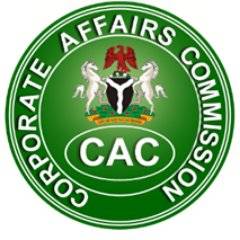Obviously, in Nigeria today, registration of a business is very important for a business’s authenticity, good reputation, and legal recognition. A business can be registered as a business name, partnership, limited liability company, unlimited company, or incorporated trustees.
When a business in Nigeria is registered, the business owner has a separate legal identity from the business itself. Thus, the business owner gets separate legal protection. Where liability arises from the business, the owner will not be held personally liable or responsible.
The Commission under the leadership of the Registrar, Alhaji Garba Abubakar, has made many efforts at educating Nigerians on the need to register their businesses.
The A.G Abubakar led team has been lauded by stakeholders for executing reforms which had improved service delivery.
Though, on many occasions, the Registrar General of CAC has been asked to address the gap that had made infractions, which maligned the integrity of honest individuals to be exploited by innovating its systems.
The Corporate Affairs Commission (CAC) is the statutory body charged with the administration of the Companies and Allied Matters Act (the Act) which includes the regulation and supervision of the formation, incorporation, registration, management, and winding up of companies in Nigeria.
Section 7 of the Act sets out the functions of the commission, as follows:
(a) Administration of the Act including the regulation and supervision of the formation, incorporation, registration, management, and winding up of companies.
(b) Establishment and maintenance of Companies Registry and offices in all the states of the Federation.
(c) Investigation into the affairs of any company where the interest of the shareholders and the public so demand
(d) Other functions as may be specified by any Act or enactment for giving full effect to the provisions of this Act, and
(e) Undertaking other activities as are necessary or expedient for giving full effect to the provisions of this Act.
It is easier to get loans from banks with a registered business name, compared to a personal loan application. Funding is critical in any business; and when it becomes necessary to source it externally, especially from banks, your legal business documents facilitate the process. This is because your company is seen as a legal entity and it can be tracked and accounted for. This gives credibility and trust and ensures confidence.
However, defaulters have made the duty of registering business names so difficult for the Corporate Affairs Commission. So the commission has decided to hold the bull by the horn. It has commenced the process of striking off companies that did not comply with the provisions of the Companies and Allied Matters Act 2020 from its register in accordance with the requirements of the account.
This simply means, business owners will not easily obtain a visa and travel to any country for business purposes, henceforth.Such business deregistered will be irrelevant on the record of the corporate affairs commission.
While potential customers may lose confidence that they are dealing with a reputable business, the business owner will not have an edge over other competing businesses that have been registered.
A statement by the commission published on its verified Twitter page on Monday said the names of the companies to be struck off have been published on the commission’s website.
About 94,581 firms are being prepared for striking off, according to a public notice on the list of affected companies published on its website on Monday.
According to the commission, companies and the general public are advised to check the website for the list of the affected companies.
“The affected companies should note that any company that fails to comply with the provisions of the Act by taking steps to file its annual returns up to date within 90 days of publication on the commission’s website shall be struck off the register,” it said.
Once struck off, a company will be legally prohibited from carrying on business unless it obtains a formal restoration order from the federal high court.
“The general public is advised that it shall be unlawful for any company struck off the register to carry on business unless it is first restored to the register by an order of the Federal High Court.
“This notice is pursuant to Section 692 (3) and (4) of the Companies and Allied Matters Act 2020,” the commission said.
The importance of business registration cannot be overemphasised, as ownership of the registration certificate is necessary to confer the right to operate a business legally and make available all rights and privileges accorded to companies in Nigeria.
Stakeholders have however, lamented a pushback against ongoing reforms at the commission, by vested interests who were applying pressure with the hope that there would be some kind of change at the commission.
Olamide Adeniji is a member of the editorial team of TheScript Newspaper




